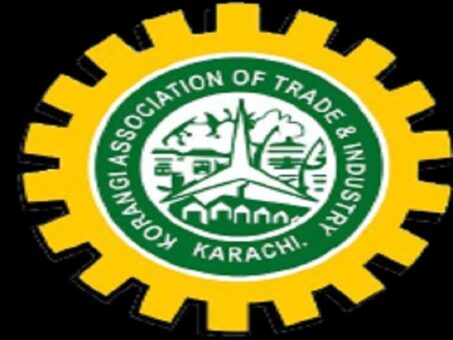KARACHI: Governor Sindh, Kamran Khan Tessori, made a candid admission on Thursday, declaring that Karachi has relinquished its position as Pakistan’s economic epicenter.
Addressing a gathering of industrialists at the Korangi Association of Trade and Industry (KATI), Sindh Governor attributed this decline to escalating crime rates and waning investor confidence, which have prompted many industrialists to relocate their operations elsewhere, including abroad.
Highlighting the severity of the situation, Sindh Governor Tessori emphasized the imperative of collective action to address these challenges. He lamented the unequal distribution of the Export Development Fund (EDF), which disproportionately benefits cities like Sialkot over Karachi, despite the latter’s substantial contributions to the national economy. Sindh Governor pledged to engage with federal authorities, including the Prime Minister, to rectify these disparities and restore Karachi’s economic prominence.
The meeting, attended by prominent industrialists including President KATI, Johar Qandhari, and Deputy Patron-in-Chief, Zubair Chhaya, underscored the urgency of the situation. Tessori urged the industrialists to collaborate in formulating solutions and extended an invitation to discuss strategies at the Governor’s House, alongside the Finance Minister and other key federal officials.
In his address, KATI President Johar Qandhari shed light on the mounting challenges faced by Karachi’s business community. He reported a staggering 37% increase in production costs, exacerbated by exorbitant electricity and gas tariffs, as well as high-interest rates. Qandhari emphasized the urgent need for a comprehensive 10-year economic policy and revealed the submission of a detailed 72-page budget proposal to the government, which has garnered praise from the Prime Minister’s Office.
The surge in crime rates has deeply unnerved investors and industrialists, according to Qandhari, who stressed that without adequate government support and infrastructure, the efforts of the business community would be insufficient to spur economic growth.
Zubair Chhaya underscored the devastating impact on employment, noting that 30 to 40 percent of workers have been laid off from private companies and industries in Karachi. While praising the government’s Sindh Industrial Trading Estates (SITE) initiative as a potential economic game-changer, Chhaya reiterated the necessity of restoring local investor confidence to attract foreign investment.
Zahid Saeed, CEO of KITE Limited, highlighted the lack of federal grants allocated to Karachi under the Industrial Areas Development Companies Act. However, he commended the Sindh government’s allocation of over one billion rupees for the development of the Korangi Industrial Area, facilitated by Chief Minister Murad Ali Shah. Saeed criticized the absence of EDF allocations for Karachi, a city that annually exports $16 billion worth of goods, and condemned the misallocation of infrastructure levy funds meant for city improvements.
In his closing remarks, Sheikh Umar Rehan, Special Assistant to the President of FPCCI, reiterated the imperative of collaborative policymaking to address these systemic challenges effectively.
As Karachi grapples with the erosion of its economic dominance, stakeholders are urged to unite in formulating pragmatic solutions to revive its erstwhile glory as Pakistan’s foremost economic hub.
